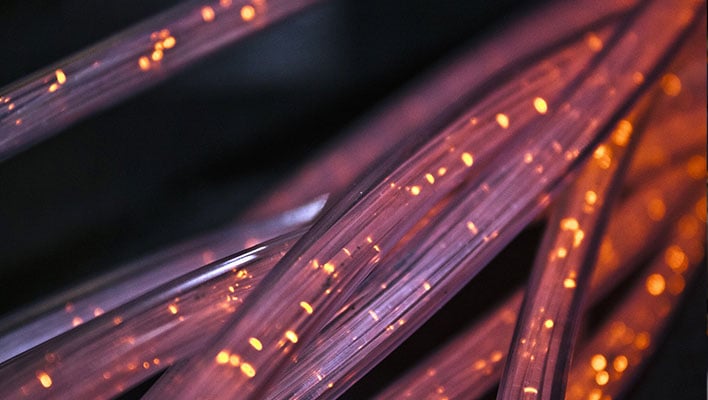At long last, the Federal Communications Commission (FCC) passed a vote to raise the minimum high-speed fixed broadband speed threshold, increasing the baseline download benchmark from 25 megabits per second (Mbps) to 100Mbps. That's a fourfold increase, or a whopping 300%, and quite frankly it's a long overdue bump in today's hyper-connected landscape. The increase also comes during an industry-wide push for
artificial intelligence (AI) experiences.
Likewise, the baseline upload speed is getting a big bump as well—the FCC voted to raise it from 3Mbps to 20Mbps, which is a massive 567% increase. The new baseline upload speed for broadband is now just 5Mbps slower than the previous download metric.
According to a press release issued by the FCC, the updated speed metrics are "based on standards now used in multiple federal and state programs (such as NTIA's BEAD Program and multiple USF programs,) consumer usage patterns, and what is actually available from and marketed by internet service providers."
Like it or not, these things are politically charged. Just a few years ago, former FCC chairman Ajit Pai declared in a
2021 broadband report (PDF) that the then "current speed benchmark of 25/3 Mbps remains an appropriate measure" for advanced telecommunications capabilities. He also praised the penetration rate, stating that "the rural-urban divide is rapidly closing."
Fast forward to today and the FCC, led by chairwoman Jessica Rosenworcel, has a Democratic majority after last September's addition of Anna M. Gomez, (D-Virginia). And as a result, the FCC's latest broadband report reads much differently than it did just three short years ago.
"The report concludes that advanced telecommunications capability is not being deployed in a reasonable and timely fashion based on the total number of Americans, Americans in rural areas, and people living on Tribal lands who lack access to such capability, and the fact that these gaps in deployment are not closing rapidly enough," the report states.
According to the latest broadband audit (PDF), 24 million Americans do not have access to fixed terrestrial broadband (not including satellite), including 28% in rural areas and 23% of people living on Tribal lands. Moreover, the report states that 45 million Americans lack access to both 100/20 Mbps fixed service and 35/3 Mbps mobile 5G-NR services.
"Nothing made this apparent like the pandemic. After all, it was just four years ago this week that so many of us were told to head home. Life moved online—school, work, healthcare, and so much more. But not all of us were able to make this digital leap. Not everyone had access to reliable broadband. The pandemic exposed our digital divide in living color," Rosenworcel said in a statement.
Looking ahead, the report also sets a long-term goal of 1 gigabit per second (Gbps) downloads and 500Mbps uploads.
In a dissenting opinion, Commissioner Nathan Simington (R) took issue with excluding satellite-based internet service from the audio, pointing to SpaceX's Starlink service as a game changer. He also questioned the "unnecessary" long-term goal, which he says will lead to a "generation of wasteful spending" in order to fund the speed increase.
"A 100/20 Mbps connection is enough to watch multiple 4K video streams, make multiple video calls, and play multiple online games, all at the same
time. Before we adopt a 1000/500 Mbps long-term goal and begin to design our universal service programs around reaching it, we need to be able to articulate the use cases for such high speeds that justify making the taxpayer subsidize deployment of such service to every corner of the country," Simington wrote.
Unfortunately, politics are at play on both sides. The point about satellite broadband being left out of the equation is a fair criticism, as well as communicating the benefits and need for turbocharged connectivity. And on the flip side, we've becoming increasingly reliant on streamed experiences, higher resolution content, and larger downloads, yet the United States isn't even in the top 10 when it comes to average internet speeds by country.

